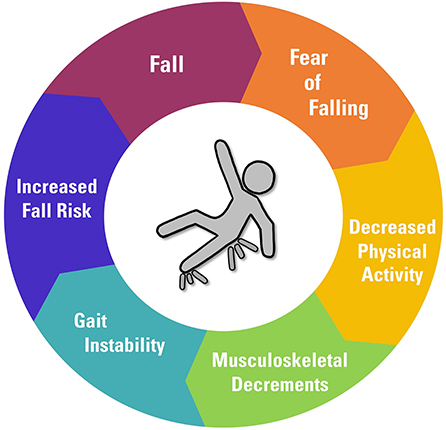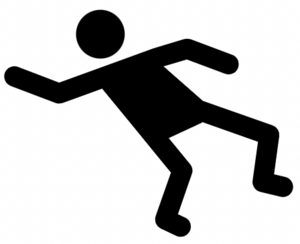The Greatest Guide To Dementia Fall Risk
The Greatest Guide To Dementia Fall Risk
Blog Article
Some Ideas on Dementia Fall Risk You Need To Know
Table of ContentsOur Dementia Fall Risk IdeasSome Known Facts About Dementia Fall Risk.Get This Report on Dementia Fall RiskMore About Dementia Fall RiskUnknown Facts About Dementia Fall Risk
Guarantee that there is a designated location in your medical charting system where team can document/reference ratings and record relevant notes connected to fall avoidance. The Johns Hopkins Autumn Danger Evaluation Device is one of lots of tools your team can utilize to help stop unfavorable clinical events.Patient drops in health centers are typical and devastating negative events that continue despite years of effort to minimize them. Improving interaction across the assessing nurse, treatment team, person, and person's most entailed loved ones might reinforce autumn prevention efforts. A group at Brigham and Women's Health center in Boston, Massachusetts, sought to create a standardized autumn avoidance program that centered around enhanced interaction and client and family interaction.

The innovation group stressed that successful execution depends on person and staff buy-in, combination of the program into existing operations, and fidelity to program processes. The group kept in mind that they are coming to grips with just how to make certain continuity in program execution during periods of dilemma. Throughout the COVID-19 pandemic, for example, a rise in inpatient falls was connected with limitations in individual involvement along with limitations on visitation.
Dementia Fall Risk Things To Know Before You Get This
These cases are typically considered avoidable. To execute the treatment, companies require the following: Accessibility to Autumn ideas sources Autumn suggestions training and re-training for nursing and non-nursing staff, including new registered nurses Nursing workflows that enable person and family members involvement to perform the drops evaluation, guarantee use of the avoidance strategy, and perform patient-level audits.
The outcomes can be extremely destructive, often increasing person decline and causing longer health center stays. One research study approximated keeps raised an extra 12 in-patient days after a patient fall. The Fall TIPS Program is based upon appealing clients and their family/loved ones across 3 primary processes: evaluation, individualized preventative interventions, and bookkeeping to guarantee that patients are participated in the three-step loss avoidance process.
The person evaluation is based on the Morse Autumn Scale, which is a confirmed fall threat evaluation device for in-patient health center settings. The range includes the six most common factors patients in medical facilities drop: the client loss history, high-risk problems (including polypharmacy), usage of IVs and other exterior devices, psychological standing, gait, and flexibility.
Each danger factor links with one or more actionable see here now evidence-based treatments. The registered nurse produces a strategy that incorporates the interventions and is noticeable to the care group, patient, and family members on a laminated poster or printed visual help. Registered nurses develop the strategy while meeting with the patient and the individual's household.
Dementia Fall Risk Fundamentals Explained
The poster works as a communication device with various other participants of the person's treatment group. Dementia Fall Risk. The audit element of the program includes evaluating the client's understanding of their risk elements and prevention strategy at the device and healthcare facility degrees. Nurse champions conduct at the very least 5 private interviews a month with patients and their households to look for understanding of the autumn prevention strategy

An estimated 30% of these drops result in injuries, which can vary in intensity. Unlike other damaging events that call for a standard medical response, autumn prevention depends extremely on the needs of the person.
Not known Incorrect Statements About Dementia Fall Risk

Based on bookkeeping results, one site had 86% conformity and two websites had more than 95% compliance. A cost-benefit analysis of the Fall pointers program in 8 hospitals approximated that the program cost $0.88 per individual to apply and resulted in cost savings of $8,500 per 1000 patient-days in direct expenses connected to the prevention of 567 falls over 3 years and 8 months.
According to the development group, companies interested in applying the program needs to perform a readiness assessment and drops avoidance voids analysis. 8 Furthermore, companies should guarantee the needed framework and operations for execution and develop an application plan. try this site If one exists, the company's Loss Avoidance Job Pressure need to be involved in planning.
The Ultimate Guide To Dementia Fall Risk
To start, companies ought to guarantee completion of training modules by registered nurses and nursing aides - Dementia Fall official statement Risk. Health center personnel ought to evaluate, based on the demands of a medical facility, whether to utilize an electronic health record hard copy or paper version of the loss prevention plan. Executing teams ought to hire and train registered nurse champs and establish procedures for bookkeeping and reporting on loss data
Team need to be entailed in the procedure of revamping the operations to involve clients and family members in the analysis and avoidance plan procedure. Solution should remain in place to make sure that systems can understand why a fall took place and remediate the cause. Extra particularly, nurses must have channels to give ongoing feedback to both team and system management so they can change and boost fall avoidance workflows and interact systemic problems.
Report this page